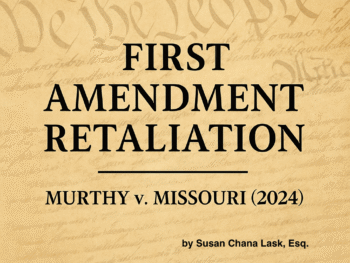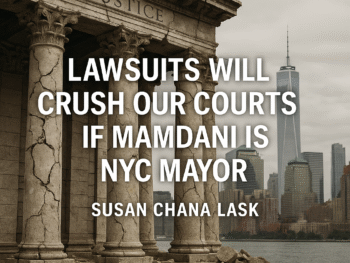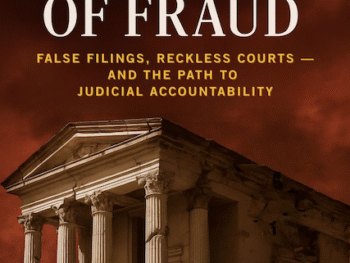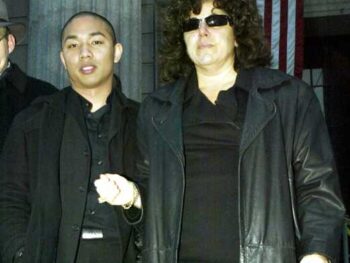Strip-search ruling may aid suits against jails
Thursday, February 12, 2009
BY PETER J. SAMPSON
NorthJersey.com
STAFF WRITER
A federal judge’s ruling that blanket strip searches at two county jails violated the constitutional rights of people detained for minor offenses is likely to add ammunition to similar class-action suits pending against Bergen and other counties in New Jersey, a plaintiffs’ lawyer said Wednesday.
The ruling last week by U.S. District Judge Joseph H. Rodriguez clears the way for upwards of 10,000 people — arrested for petty crimes or violations such as failure to pay child support — to claim damages for being unlawfully strip-searched at the Burlington County Jail and the Essex County Correctional Facility since 2003, said New York attorney Susan Chana Lask.
After 3 1/2 years of litigation, Lask said it will now be up to a jury to determine the amount of monetary damages to be shared by class members as compensation for the humiliation they endured.
Rodriguez ruled in a class-action suit brought by Albert Florence, 33, a finance director from Bordentown. Stopped by a state trooper in Burlington County in March 2005, he was arrested on a 2003 bench warrant mistakenly issued for a fine that had already been paid. At the jail, he was directed to disrobe completely, turn around and lift his genitals as an officer sat a yard away.
Six days later, Florence was transferred to the Essex jail where he was strip-searched again. This time, he and several other arrestees were instructed to disrobe in separate shower stalls, lift their genitals and “squat and cough” in unison in front of two officers. Florence was released the next day when the charges against him were dismissed.
“It was a tremendous, horrible experience,” Florence said Wednesday at a news conference in Newark. “I can’t even use an adjective to describe it. It wasn’t a good or pleasurable experience.”
Officials in Burlington and Essex counties declined to discuss the ruling but vowed to appeal.
In court, the two counties argued their intake procedures and policies are constitutional. Burlington said its search policy is not only necessary to prevent smuggling of contraband but also to identify gang members — through body markings, tattoos and piercings – and keep them apart to avert violence that could erupt if rivals are placed in the same cell. It also cited health concerns.
Neither county offered any evidence of a smuggling problem at their facilities, the judge noted. The counties also failed to produce any documentation of a reasonable suspicion to justify searches of non-indictable detainees, Lask said.
The ruling adds authority to the case law in New Jersey and is likely to buttress the position of plaintiffs in similar class actions, such as those pending against Bergen, Atlantic, Middlesex and Union counties, Lask said.
“You can’t help but follow it. It’s a very well-written, reasoned decision,” said Lask. “It follows the law so completely that I think everyone else is going to follow it.”
“No case in New Jersey has gone this far or has had a decision of liability against them,” said Lask, noting the eventual award to individual class members could range from $2,000 to up to $10,000 if the counties fail to correct their practices.
In the past 18 months, Camden and Cumberland counties settled similar class-action suits for $7.5 million and $4.5 million, respectively. In November, Mercer County agreed to a $1.8 million payout and a proposed $640,000 settlement is awaiting judicial approval in Salem County.
In Bergen County, two plaintiffs are seeking to represent a class of minor offenders who were strip-searched at the county jail from March 6, 2006, to the present.
E-mail: sampson@northjersey.com
A federal judge’s ruling that blanket strip searches at two county jails violated the constitutional rights of people detained for minor offenses is likely to add ammunition to similar class-action suits pending against Bergen and other counties in New Jersey, a plaintiffs’ lawyer said Wednesday.
The ruling last week by U.S. District Judge Joseph H. Rodriguez clears the way for upwards of 10,000 people — arrested for petty crimes or violations such as failure to pay child support — to claim damages for being unlawfully strip-searched at the Burlington County Jail and the Essex County Correctional Facility since 2003, said New York attorney Susan Chana Lask.
After 3 1/2 years of litigation, Lask said it will now be up to a jury to determine the amount of monetary damages to be shared by class members as compensation for the humiliation they endured.
Rodriguez ruled in a class-action suit brought by Albert Florence, 33, a finance director from Bordentown. Stopped by a state trooper in Burlington County in March 2005, he was arrested on a 2003 bench warrant mistakenly issued for a fine that had already been paid. At the jail, he was directed to disrobe completely, turn around and lift his genitals as an officer sat a yard away.
Six days later, Florence was transferred to the Essex jail where he was strip-searched again. This time, he and several other arrestees were instructed to disrobe in separate shower stalls, lift their genitals and “squat and cough” in unison in front of two officers. Florence was released the next day when the charges against him were dismissed.
“It was a tremendous, horrible experience,” Florence said Wednesday at a news conference in Newark. “I can’t even use an adjective to describe it. It wasn’t a good or pleasurable experience.”
Officials in Burlington and Essex counties declined to discuss the ruling but vowed to appeal.
In court, the two counties argued their intake procedures and policies are constitutional. Burlington said its search policy is not only necessary to prevent smuggling of contraband but also to identify gang members — through body markings, tattoos and piercings – and keep them apart to avert violence that could erupt if rivals are placed in the same cell. It also cited health concerns.
Neither county offered any evidence of a smuggling problem at their facilities, the judge noted. The counties also failed to produce any documentation of a reasonable suspicion to justify searches of non-indictable detainees, Lask said.
The ruling adds authority to the case law in New Jersey and is likely to buttress the position of plaintiffs in similar class actions, such as those pending against Bergen, Atlantic, Middlesex and Union counties, Lask said.
“You can’t help but follow it. It’s a very well-written, reasoned decision,” said Lask. “It follows the law so completely that I think everyone else is going to follow it.”
“No case in New Jersey has gone this far or has had a decision of liability against them,” said Lask, noting the eventual award to individual class members could range from $2,000 to up to $10,000 if the counties fail to correct their practices.
In the past 18 months, Camden and Cumberland counties settled similar class-action suits for $7.5 million and $4.5 million, respectively. In November, Mercer County agreed to a $1.8 million payout and a proposed $640,000 settlement is awaiting judicial approval in Salem County.
In Bergen County, two plaintiffs are seeking to represent a class of minor offenders who were strip-searched at the county jail from March 6, 2006, to the present.









